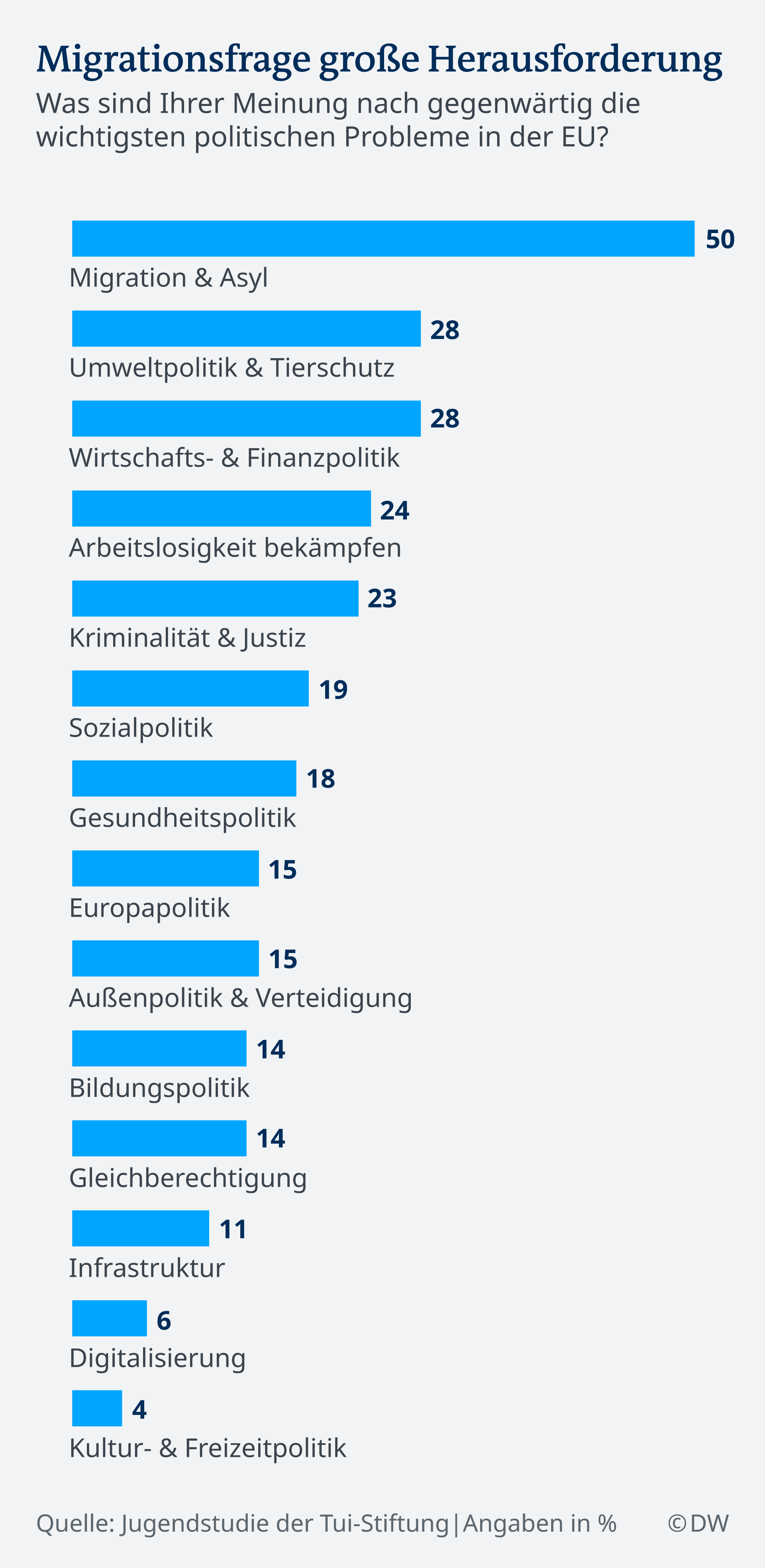The European election is coming up. The latest youth study from the TUI Foundation shows that Young people want more Europe. Asylum and Migration, and the environment will be the most important political issues.

Europe is the young people at heart, but you want to have a say more. Especially in the topics that are most important to you. “The Generation Europe calls for a greater voice and a greater say. This is the message of this year’s youth study to all who bear political responsibility,” says Elke Hlawatschek, managing Director of the TUI Foundation.
Nevertheless, only one in two young Europeans, aged between 16 and 26 years, the European elections are really important, and even only one out of five respondents feel the EU Parliament truly represents. Surprising this is not, however, the average age in the EU Parliament, at 56 years of age, the youngest parliamentarians in Brussels is a 30-year-old Bulgarian.
Even if the subject of “asylum and Migration” is cited as currently the most important Problem in the EU, it does not mean that open borders can be rejected: 43% of the respondents, the mention of asylum and Migration as the main Problem, consider open borders within the EU as an opportunity, and only 27 percent as a threat. The freedom of movement within the EU is mostly assessed positively and is for young people not for discussion.

“Fridays for Future”movement provides for a slow change in thinking
Very important is also the environmental and climate protection for Europe’s youth. For months, young people are protesting in the “Fridays for Future”movement. They are demonstrating against the destruction of the environment, a much too high energy consumption, rising CO2-emissions in the transport and in the mass rearing of animals as well as the contamination of soil, air and groundwater. Your appeal: The politicians must do much more to protect the environment and the climate.
The same is true of the nerve in the elderly. In Germany, 81 per cent of the citizens, urgent action is currently needed in the area of climate protection. 85 percent are of the view that climate change cannot be stopped without restrictions in life-style. So the result of the current ARD Germany trend.
The actual willingness to change their own consumption habits for the protection of the environment, however, is growing only slowly. Here the youth is progressing. 28 percent of respondents in the TUI study, in the past year on certain products for political or ethical reasons, waived, or to have you just so consumed. In Germany, 33 percent said the.

Young people are calling for more radical changes
But how can it succeed, to involve young people not only in the political discourse, but also in the political process? The political parties need to create more modern structures that make it easier for young people to enter and participate, recommends Marcus Spittler from the science centre Berlin for social research (WZB): “Young adults show a keen interest in such parties, the offer you a type of change or a vision for the future: 67 percent believe that it needs radical changes in order to bring the political System in order.”
This desire for change is, among other things, a reason why sometimes populist parties for young people are interesting. “A Coal phase-out by 2038 and free Wi-Fi in the Bavarian buses in 2050 is just too little utopia,” says Spittler. To would have to think give the politicians too, only in the North of the EU, a majority of respondents is of the opinion that their standard of living will be higher than that of their parents.

Voting age in the EU 16 down?
Another concern is that only slightly more than half (58 per cent) of the young people of the democracy as the best state form is convinced. Very low Approval ratings in France (38 per cent), Italy and Poland (both 46 percent). Particularly strong support for democracy in Greece (73 per cent), Germany and Sweden (both 66 percent), and Denmark (65 per cent). However, only a minority (six percent) of young people in other forms of government than democracy for the better.
Around 60 percent of the youth surveyed indicate that they consider it at least “likely” that they will vote in the European elections of 2019. In most EU countries, young citizens are entitled to 18 years of age choice. Marcus Spittler from the WZB encourages to lower the voting age in the EU, in principle, to 16 years, as it is already in Malta and Austria.
As a result, young adults would be able to participate better in the political process. “In fact, you would have the choice age of 16 the Chance to accompany the first ballot is still stronger in the schools and in the training, so that young people can develop a kind of choice habit.”